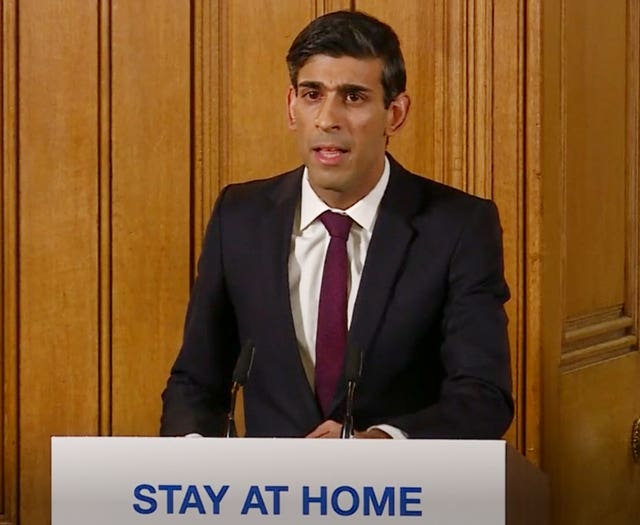The cinema workers’ union has described the Government’s latest financial package during the Covid-19 outbreak as a “devastating blow” to its freelance and self-employed members.
Head of Bectu, Philippa Childs, said those workers needed “much more” support than was promised during No 10’s press conference on Friday.
During the briefing, Chancellor Rishi Sunak announced that the Government will pump almost £7 billion into the welfare system, and that the Universal Credit standard allowance will be increased by £1,000 a year for the next 12 months.

Boris Johnson also ordered cinemas, theatres, nightclubs and live music venues to close their doors from Friday night.
Ms Childs said in a statement: “The Chancellor’s support package for workers will come as a devastating blow to freelance and self-employed workers who needed much more support than they are being given.
“These workers are looking to the Chancellor in desperation for a vital lifeline and he has badly let them down, despite his grand promise to do ‘whatever it takes’.
“It is clear the Chancellor simply doesn’t understand the hardship these workers are in – telling them to simply claim universal credit while other workers have their incomes protected is cruel and unfair.
.@RishiSunak must urgently revise income support plan to include freelancers and self-employed says @philippachilds Read Bectu's official response to the latest government measures: https://t.co/NxLmRDbEVR
— Bectu (@bectu) March 20, 2020
“The delay in the self-assessment tax deadline is something Bectu had been campaigning for and we are pleased the Chancellor has listened to us and our members on this but it really is the least he could have done.
“He must urgently revise his income support plan to include these workers and not force them onto the welfare system and we will be making urgent representations to government to make sure all our members are protected during this crisis.”
The Society of London Theatre (Solt), which represents hundreds of theatres in the capital, said the announcement on closures provided the clarity they had been calling for.
A spokeswoman said: “The Government’s announcement gives the theatre industry the clarity Solt and UK Theatre have been lobbying for – we will be studying the details when we receive them, and continue to ask for a clearer timeframe for theatre closures.”
The Government’s announcement today does not go nearly far enough, and leaves hundreds of thousands of self-employed night time workers without a vital safety net. The Government must urgently rethink its plans and provide support to self-employed workers.
— Night Czar (@nightczar) March 20, 2020
London’s night tsar, Amy Lame, criticised the Government for the manner in which it had addressed self-employed and freelance workers.
She said: “The Government’s announcement today does not go nearly far enough, and leaves hundreds of thousands of self-employed night time workers without a vital safety net.
“The Government must urgently rethink its plans and provide support to self-employed workers.
“This should include a universal basic income to ensure they will be able to afford basic needs.
“Government cannot ignore this without causing further misery. Lack of action risks permanently jeopardising the future of London’s world-renowned night time economy.”
Tom Kiehl, acting chief executive of UK Music, the body that represents the music industry’s commercial interests, criticised the package of measures.
He said they fell “far short” of what was needed to support freelance and self-employed workers in the music industry.
Mr Kiehl said: “While we welcome the much-needed help for those who are traditionally employed, the Government’s proposals fall far short of the lifeline needed by the self-employed in the music industry and creative sector.
“The Government should urgently look at setting up a Temporary Income Protection Fund for self-employed workers and freelancers.
“The self-employed make up around 72% of the music industry and are a vital part of its success.
“They should be offered the same help as other workers who will get 80% of wages up to £2,500 a month if they cannot work due to the coronavirus pandemic.”
Caroline Norbury, chief executive of the Creative Industries Federation, welcomed the news but said it did not go far enough.
She said: “We welcome the news that the Government is standing by British businesses in this historic announcement but they have failed to stand by freelancers and self-employed workers – causing worry and division at this difficult time.
“The Chancellor’s announcement tonight that the Government will pay wages up to 80% for businesses will be very much welcomed by the UK’s creative businesses, many of whom have had to shut their doors overnight.
“However, this creates a worrying inequity between those who now have their income secured and the UK’s five million self-employed workers and freelancers who are left despondent.”
